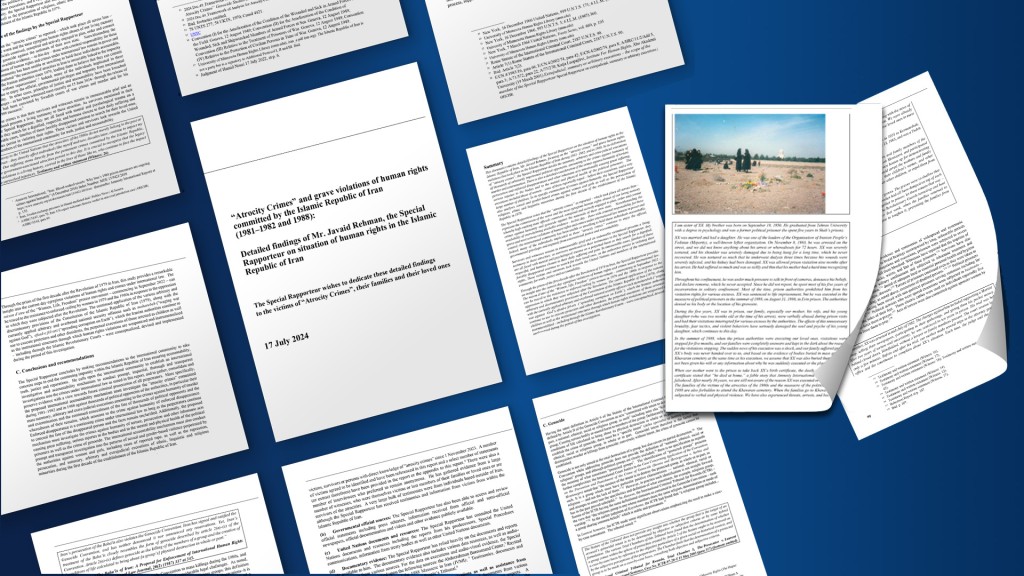UNSR Prof. Javaid Rehman Releases His Report

Torture and Genocide: The Dark History of the Iranian Regime’s Atrocities
At the conclusion of his six-year mission, Professor Javaid Rehman, the UN Special Rapporteur on the human rights situation in Iran, issued a detailed report declaring that the massacre of PMOI prisoners in 1981, 1982, and 1988 constitutes clear examples of crimes against humanity and genocide. The fatwa issued by Khomeini in 1988 exposed his intent to commit genocide against the People’s Mojahedin Organization of Iran. Professor Rehman’s report is grounded in testimonies, documents, reports, and extensive investigations.
The UNSR’s report underscores the urgent need to refer the case of severe human rights violations in Iran to the United Nations Security Council, a call the Iranian Resistance has been making for the past 40 years.
As the report underscores, many individuals implicated in these crimes continue to hold high-ranking positions within the regime. Consequently, the UN Security Council must take decisive steps to arrange the trial of Ali Khamenei and other senior regime officials, including the head of the judiciary, numerous judicial authorities, IRGC commanders, and others involved in these atrocities.
Engaging in deals and negotiations with a regime whose leaders are directly implicated in crimes against humanity and genocide constitutes a severe breach of fundamental and universal human rights principles. The international community’s failure to act against this regime over the past four decades has allowed such atrocities to persist, as evidenced by the massacre of protesters in 2019 and 2022.
The UNSR emphasizes that crimes against humanity and genocide occurred between July and September 1988, and that these crimes, particularly enforced disappearances, persist to this day. Many of those involved “remain in power and control.” He concludes, “Impunity must end.”
The UNSR report points out that human rights violations during the Shah’s era, including the executions of more than 300 political dissidents after grossly unfair trials in military courts, as well as grave human rights abuses and torture by SAVAK (the Shah’s secret police), alongside endemic corruption, contributed to mass discontent and demonstrations that ultimately led to the Shah’s overthrow.
The Special Rapporteur calls upon individual member states of the United Nations to make use of universal jurisdiction to investigate, issue arrest warrants against, and prosecute individuals for crimes against humanity as well as genocide, and other serious human rights violations, including torture, enforced disappearances and summary, arbitrary and extrajudicial executions.

